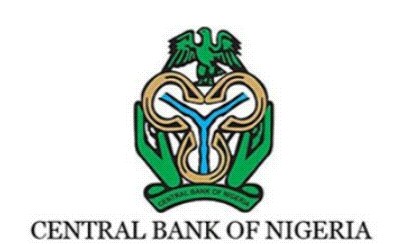Nigeria’s total export earnings increased by 10.2 per cent to $14.394 billion in the first quarter (Q1) of 2018 compared with the $12.925 billion recorded in Q4 2017.
The Central Bank of Nigeria (CBN) disclosed this in its Q1 2018 ‘Brief on Balance of Payments Statistics,’ posted on its website.
The growth in the country’s export earnings in the review period also indicated an increase of about 44.4 per cent when compared to Q1 2017.
But earnings from crude oil and gas, which accounted for 93.3 per cent of total export earnings during the review period, increased by 10.1 per cent to $13,426 billion in Q1 2018, when compared with the preceding quarter.
On the other hand, earnings from non-oil and electricity exports also increased by 12.3 per cent to $967.08 million in the review period, when compared with the preceding quarter.
Also, available data showed that payments for import of goods (free on board) to the economy in the review period grew by 13.9 per cent to $8,642 billion above the level recorded in the preceding period.
This was attributed largely, to a 99.5 per cent increase in the imports of petroleum products.
According to the report, the provisional Balance of Payments (BOP) estimates for Nigeria in Q1 2018 showed a significant improvement in the country’s position as overall, it indicated a surplus of $7,322 billion, compared with a surplus of $6,180billion in the preceding quarter.
It also indicated an improved position, when compared to a surplus of $2.975 billion recorded in the corresponding period of 2017.
The current account balance (CAB) also improved significantly from a surplus of $3.656billion in Q4 2017, to a surplus of $4.469 billion in Q1 2018.
“The financial account balance indicated a net acquisition of financial assets of $10.293 billion in the review period as against US$3.859 billion recorded in the preceding period.
“The current account witnessed a positive outcome during the review period, recording a higher surplus of $4.469 billion as against a surplus of US$3.656 billion and $3.418 billion in the previous quarter and corresponding period of 2017, respectively.
“This development was largely attributable to the increased export earnings and the net surplus in current transfers,” it added.
Additionally, the report showed that the surplus in the country’s Goods Account increased to $5.752 billion in Q1 2018 from a surplus of $5.473 billion in the preceding quarter and $2.271 billion recorded in the corresponding period of 2017.
However, net out-payments for services during the review period decreased by 5.1 per cent to a deficit of $4.445 billion when compared with the level recorded in Q4 2017.
But when compared with the level in the corresponding period of 2017, it indicated a significant increase of about 201.2 per cent.
The country’s income account (net) also worsened to a debit of $3.272 billion in the review period, from $2.983 billion recorded in the preceding period.
This was significantly different from the $2.278 billion recorded in the corresponding period of last year.
“Current transfers (net) increased by 9.9 and 31.3 per cent to a surplus of $6.434billion in Q1 2018 when compared with the levels in the preceding quarter of 2017 and corresponding period of 2017, respectively.
“Provisional Q1 2018 estimates for the Financial Account showed an increase in net acquisition of financial assets from $3.859 billion recorded in Q4 2017 to $10.293 billion in the review period.
“It also indicated an improved position when compared to the net incurrence of financial liabilities recorded in the corresponding period of 2017.
“The stock of external reserves as at end March 2018 stood at $46.730 billion, indicating an accretion of 18.7 per cent when compared with the preceding quarter.
“When compared with the corresponding period of 2017, it recorded a higher accretion of 55.8 per cent. The reserves could finance approximately 16.2 months of imports, compared with 15.6 and 11.7 months of imports cover for the preceding quarter and corresponding period of 2017, respectively,” it added.
